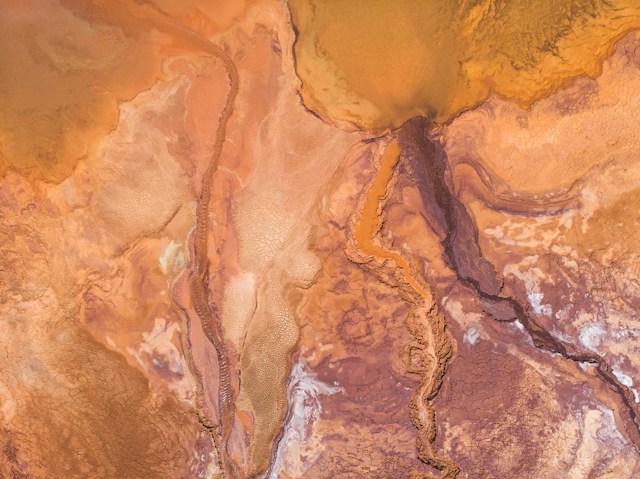By Environment News Service
Several hundred members of the largest Ecuadorian indigenous organization today began marching to the capital, Quito, to protest new mining in their territory. They expect to arrive in Quito on March 22.
The indigenous march started from Yantzaza in Zamora Chinchipe province southern Ecuador, where a Canadian company has been authorized to develop a large open-pit copper mine – the first large-scale mine under a new government mining policy.
The Confederation of Indigenous Nationalities of Ecuador, CONAIE, says that at the heart of the current discontent is not only this particular mine but also President Rafael Correa’s plans to allow international companies to carry out large-scale mining projects.
They are demanding that the government pass legislation to regulate water management and land redistribution.
On March 5, the Correa government signed an agreement with Ecuacorriente, the local unit of British Columbia-based Corriente Resources Inc., that allows the company to mine the Mirador copper project, according to Wilson Pastor, minister of nonrenewable natural resources.
Pastor said the company intends to invest about $1.4 billion over the next five years in the Mirador project. Ecuacorriente will pay $100 million in advance royalties to fund social projects in areas around the mine.
But as people gathered today in Zamora Chinchipe to start the march, provincial prefect and indigenous leader Salvador Quishpe reiterated their concerns for aboriginal communities where mining pollutes formerly pristine lands and rivers.
Read more from Environment News Service:
- First and foremost we must recognize that non-indigenous people are occupying stolen land in an ongoing genocide that has lasted for centuries. We must affirm our responsibility to stand with indigenous communities who want support and give everything we can to protect their land and culture from further devastation; they have been on the frontlines of biocide and genocide for centuries, and as allies, we need to step up and join them.
- You are doing Indigenous solidarity work not out of guilt, but out of a fierce desire to confront oppressive colonial systems of power.
- You are not helping Indigenous people, you are there to: join with, struggle with, and fight with indigenous peoples against these systems of power. You must be willing to put your body on the line.
- Recognize your privilege as a member of settler culture.
- You are not here to engage in any type of cultural, spiritual or religious needs you think you might have, you are here to engage in political action. Also, remember your political message is secondary to the cause at hand.
- Never use drugs or alcohol when engaging in Indigenous solidarity work. Never.
- Do more listening than talking, you will be surprised what you can learn.
- Recognize that there will be Indigenous people that will not want you to participate in ceremonies. Humbly refrain from participating in ceremonies.
- Recognize that you and your Indigenous allies may be in the minority on a cause that is worth fighting for.
- Work with integrity and respect, be trustworthy and do what you say you are going to do.

